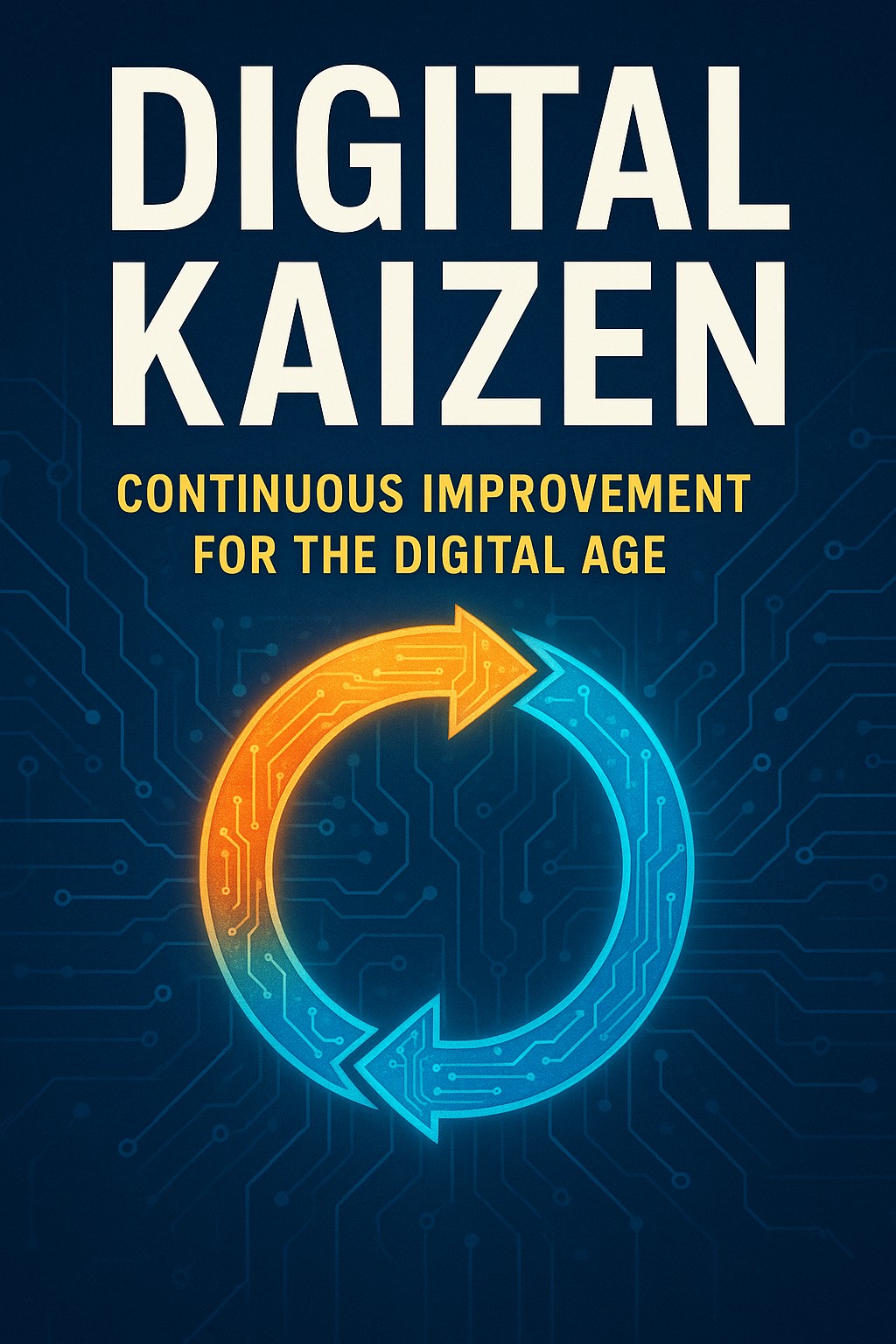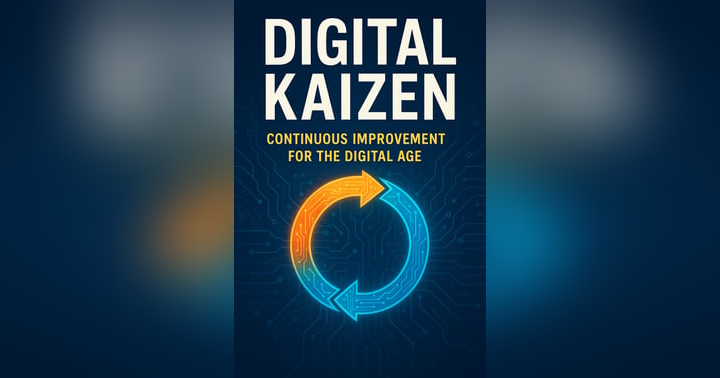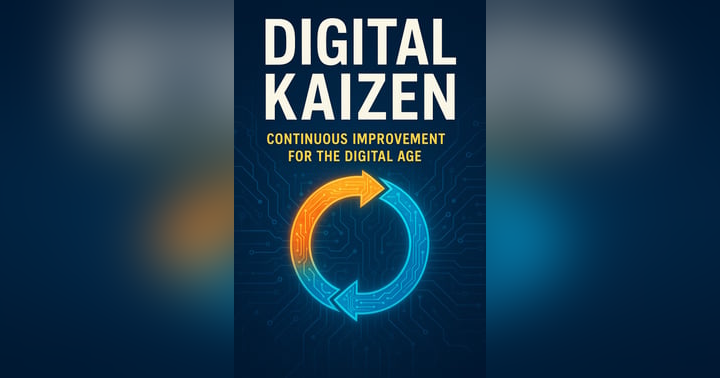How AI Hijacked the First Impression—and What Smart Advisors Are Doing About It

I recently sat down with Brian Thorp , founder of Wealthtender , to unpack something that's been bothering me for months. Something subtle and seismic has shifted. It’s not that prospects have gone quiet—it’s that they’re now turning to AI first. Before they ever speak to a human, they’re already forming opinions.
The client journey has fundamentally shifted, and I've been watching it happen in real time.
Prospects who used to call me directly after a referral now spend weeks researching online first. They're having their initial "conversation" about money with AI tools, not with advisors.
By the time they reach out, they've already formed opinions, gathered information, and often narrowed their choices. The first impression—that crucial moment where trust begins—is happening without us in the room.
Fifty-four percent of Americans now turn to ChatGPT with financial questions. Nearly half seek investment advice from AI tools. Among high-income earners, that number jumps above 80%.
These aren't tire-kickers. These are exactly the clients we want to serve.
The problem runs deeper than I initially realized. Google's AI Overviews now appear in more than 50% of all search results. Just ten months ago, that figure was 25%.
We're witnessing the collapse of traditional search timelines. We're two years ahead of schedule in the transition to AI-powered answers.
The Grocery Store Problem
Brian explained this shift with an analogy that made everything click.
"If a personal shopper needs groceries for a family, they're more likely to visit Kroger or Whole Foods than travel the country buying from individual farms," he told me. "ChatGPT works the same way. Rather than searching thousands of individual advisor websites, it recognizes trusted platforms where it can quickly find hundreds of advisors with varying specializations."
Your website is the individual farm. Platforms like Wealthtender are the grocery stores.
AI tools shop where information is organized, structured, and easy to find.
This creates what Brian calls the "visibility crisis." Most advisors remain invisible to AI-powered search because their content isn't formatted for machine understanding.
The Schema Solution
The technical fix involves something called schema markup. Think of it as invisible labels that help AI tools understand your content.
When Hazel Secco, an advisor in Hoboken, publishes client reviews on Wealthtender, the platform automatically adds schema markup code. This tells AI tools that the content represents verified client feedback about a financial advisor.
The results speak for themselves. When someone asks ChatGPT for "an advisor for Amgen employees," Hazel appears as one of the top suggestions. Not because she paid for advertising. Because her content is properly structured for AI consumption.
Wealthtender recently launched AI-Optimized FAQs that take this concept further. The FAQs look normal to human visitors. But underneath, schema code tells AI tools these represent questions and answers about a specific advisor.
Different types of schema exist for different content. FAQ schema for questions and answers. Review schema for client feedback. Financial Services schema for advisor profiles.
Each piece of structured data increases the likelihood that AI tools will surface your information when prospects ask relevant questions.
The Strategic Distinction
Brian made an important distinction about FAQ strategy that changed how I think about content creation.
FAQs on your website should answer due diligence questions. Fees, onboarding process, what to expect in the first meeting.
FAQs on platforms like Wealthtender should answer discovery questions. "Does this advisor specialize in Amazon employees in Seattle?" "Who helps pharmaceutical workers with stock options?"
The platform FAQs capture prospects at the beginning of their search journey. Your website FAQs convert them at the end.
Both matter. But platform FAQs with proper schema markup are far more likely to surface in AI tools than content buried on individual websites. 👉 If you're unsure where to start, begin by asking: What would a prospect type into ChatGPT to find someone like me? That question alone can reshape how you show up online.
The Competitive Window
That's where things get interesting—because independent advisors aren't just catching up. They're leaping ahead. Here's what excites me most about this moment.
Independent advisors have advantages that wirehouses can't touch. We can collect client testimonials and publish online reviews. Wirehouse advisors remain restricted by compliance departments that move at glacial speed.
"It will probably be five years, if ever, when a wirehouse advisor is permitted to collect client testimonials and publish online reviews," Brian observed. "But independent advisors can implement this powerful tactic for a nominal cost and low time commitment."
We're seeing independent advisors win business over wirehouse firms with multi-million dollar marketing budgets. Simply by publishing authentic client reviews and implementing compliant testimonial strategies.
This advantage won't last forever. Eventually, one major wirehouse will embrace testimonials and reviews. The others will follow. When that happens, the competitive window closes.
But right now, today, smaller advisors can level the playing field against the largest firms with the deepest pockets.
Digital Kaizen in Action
This represents Digital Kaizen at its finest. Small, sustainable improvements that compound into significant competitive advantages.
The cost barrier is remarkably low. Brian mentioned that advisors can join Wealthtender for less than $100 monthly. The time investment is minimal. Two hours in the first month to establish a strong online presence.
Compare that to traditional marketing approaches. Print advertisements, radio sponsorships, seminar costs. The old methods require substantial upfront investment with uncertain returns.
AI-optimized visibility requires action, not massive budgets.
The advisors who embrace this shift recognize that small marketing investments can yield disproportionate returns. Especially when those investments position them ahead of competitors who are still thinking in traditional SEO terms.
The Measurement Challenge
Brian acknowledged the difficulty of measuring AI optimization results. Advisors prefer marketing tactics with clear, quantifiable ROI. Off-site SEO and Answer Engine Optimization remain harder to track than traditional advertising.
But the trajectory is undeniable. Sensitive topics like finance, healthcare, and legal advice are gaining traction in AI Overviews. Google historically restricted AI responses in these regulated sectors. That's changing rapidly.
The advisors who act now benefit from first-mover advantages. Those who wait face an increasingly crowded field of AI-optimized competitors.
Michael Kitces regularly publishes research showing the massive difference between what independent advisors spend on marketing versus what national networks invest. The large firms have done the math. They know marketing investment generates positive ROI.
Smaller firms can now access similar visibility advantages without matching those marketing budgets. But only if they adapt their approach to an AI-first world.
The First Step
For advisors reading this who feel the urgency to act, the path forward is straightforward.
Start with off-site optimization before perfecting your website. Join a platform like Wealthtender that provides built-in schema markup and AI optimization features.
Collect client testimonials and reviews. This simple step gives independent advisors a massive advantage over restricted wirehouse competitors.
Create FAQs that answer discovery questions, not just due diligence questions. Help AI tools understand your specializations and ideal client profiles.
The technical implementation happens automatically when you choose the right platform. Your job is creating authentic content that reflects real client conversations.
This isn't about gaming algorithms or manipulating search results. It's about making your genuine insights and experience accessible to AI tools that are increasingly mediating the advisor discovery process.
The Bigger Picture
As I reflected on my conversation with Brian, I realized we're witnessing more than a marketing evolution. We're seeing a fundamental shift in how trust gets established between advisors and prospects.
Traditional marketing relied on interruption. Radio ads, print advertisements, cold calls. We pushed our message toward reluctant audiences.
AI-mediated discovery works differently. Prospects actively seek information. AI tools surface relevant advisors based on structured data and authentic client feedback.
The advisors who thrive in this environment will be those who focus on creating genuine value and ensuring that value is properly formatted for AI consumption.
Digital Kaizen teaches us that small, consistent improvements compound over time. In the context of AI optimization, this means regularly updating your structured data, consistently collecting client feedback, and continuously refining your FAQ content based on real client questions.
The goal isn't to optimize everything at once. It's to build systems that grow with the technology while maintaining the human connections that make advisory relationships meaningful.
Your prospects are asking AI about money before they call you. The question is whether AI knows enough about you to make the introduction.
The window for competitive advantage remains open. But it won't stay that way forever.
Small improvements. Consistent action. Significant results.
That's Digital Kaizen. And right now, it's exactly what our industry needs. The client journey has changed, but the destination remains the same—meaningful relationships built on trust and genuine value. When prospects do call now, they're better informed, more intentional, and ready for deeper conversations. That's not decline. That's evolution. That's Digital Kaizen in action.
Brian Thorp is the CEO and founder of Wealthtender, and Editor-in-Chief. He and his wife live in Texas, enjoying the diversity of Houston and the vibrancy of Austin. With over 25 years in the financial services industry, Brian is applying his experience and passion at Wealthtender to help more people enjoy life with less money stress.
Brian was recognized by WealthManagement.com as one of its top 10 innovators and influencers set to change the wealth management industry in 2024.
Chris Hensley is a financial advisor, podcast host, and creator of the upcoming book Digital Kaizen: Small Loops, Big Shifts in an AI World. With over two decades of experience guiding clients through complex financial decisions, Chris now blends his expertise in retirement planning with cutting-edge tools like AI, voice-first thinking, and behavioral science. Digital Kaizen is a philosophy for those who want to grow sustainably in a world that moves fast—combining human wisdom, technology, and tiny, honest loops of improvement. This article is a preview of the ideas explored in Digital Kaizen, due out later this year.👉 Want early access to tools and insights from Digital Kaizen? https://digital-kaizen-book.kit.com/6a16de43b8
Grab the free Digital Kaizen Starter Guide and explore how to build better systems for thinking, learning, and working in an AI world.






